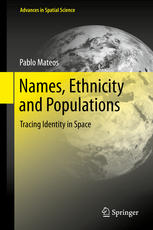

Most ebook files are in PDF format, so you can easily read them using various software such as Foxit Reader or directly on the Google Chrome browser.
Some ebook files are released by publishers in other formats such as .awz, .mobi, .epub, .fb2, etc. You may need to install specific software to read these formats on mobile/PC, such as Calibre.
Please read the tutorial at this link: https://ebookbell.com/faq
We offer FREE conversion to the popular formats you request; however, this may take some time. Therefore, right after payment, please email us, and we will try to provide the service as quickly as possible.
For some exceptional file formats or broken links (if any), please refrain from opening any disputes. Instead, email us first, and we will try to assist within a maximum of 6 hours.
EbookBell Team

4.0
76 reviewsEthnicity has become one of the most studied human dimensions in social and biomedical sciences over the past decade. However, there are important shortcomings in the means available to researchers to define and classify human group difference in past, as well as contemporary populations. Personal naming conventions usually adhere to unwritten social norms and customs that with time end up producing distinctive cultural, ethnic, linguistic, religious and geographic patterns in name distributions. This book follows the fascinating journey of personal names across the world, using maps and networks to identify alternative combinations of ethnic and geographic origins in contemporary population groups and neighbourhoods. This innovative approach allows population researchers to build more nuanced understandings about the history and immediate future of our contemporary multicultural societies, at a time in which the predominant political discourse and public debates are challenging increasing population diversity in the developed world.